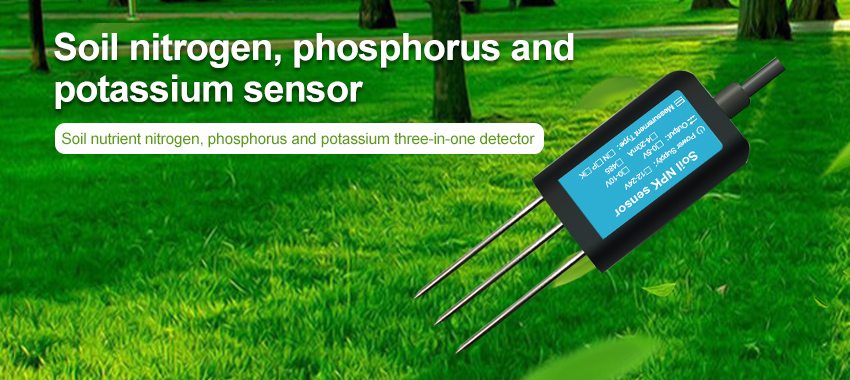Agriculture has evolved tremendously in the past few decades, and the evolution of technology has played a crucial role in this transformation. One of the most significant advancements in agriculture is the emergence of precision farming, which involves using technology to optimize crop yields and reduce waste. Soil sensors are an integral part of precision farming and offer immense potential for improving agricultural practices. In this article, we will explore the potential of soil sensors in precision agriculture, their applications, benefits, and future developments.

I. The Role of Soil Sensors in Precision Agriculture
Soil sensors are devices that measure and provide real-time data on various soil parameters, including moisture content, temperature, nutrient levels, and pH value. This information helps farmers make informed decisions about irrigation, fertilization, and other crop management practices. Soil sensors enable farmers to monitor soils more closely and accurately, leading to higher crop yields and reduced waste.
II. Applications of Soil Sensors in Precision Agriculture
Soil sensors find numerous applications in precision agriculture, including:
Irrigation Management: Soil moisture sensors can help farmers determine when and how much to irrigate their crops. This enables precise scheduling of irrigation, reducing water waste and ensuring optimal moisture levels for plant growth.
Fertilizer Management: Soil sensors can help farmers identify nutrient deficiencies in the soil and tailor fertilizer application to the specific needs of the crop. This ensures efficient use of fertilizer, minimizes environmental pollution, and maximizes crop health.
Soil Management: Soil sensors can help farmers analyze soil nutrient levels, pH values, and composition, allowing them to adjust soil acidity or alkalinity to create optimal growing conditions for plants.
Pest Management: Soil sensors can detect the presence of pests, pathogens, and nematodes, enabling early intervention and targeted pest management strategies.
III. Benefits of Soil Sensors in Precision Agriculture
The integration of soil sensors into farming practices offers several key benefits:
Precision Farming: Soil sensors enable precise and site-specific management of agricultural inputs, optimizing resource allocation and reducing waste. Precision farming practices help farmers achieve higher yields while minimizing environmental impact.
Resource Conservation: With accurate soil moisture and nutrient monitoring, farmers can avoid under- or overuse of water and fertilizers, ensuring efficient use of resources and reducing costs. This promotes sustainable resource management practices, particularly in regions prone to drought or water scarcity.
Increased Yield and Quality: By tailoring irrigation, fertilization, and other cultivation practices based on real-time soil data, farmers can optimize plant growth conditions, leading to improved crop yields and enhanced product quality.
Environmental Sustainability: Precision farming technologies like soil sensors promote sustainable agriculture by minimizing the use of fertilizers, pesticides, and water resources. This reduces environmental pollution, conserves natural resources, and protects ecosystems.

IV. Future Developments in Soil Sensor Technology
Soil sensor technology is continuously evolving, with ongoing research and development to enhance functionality and usability. Future advancements may include wireless sensor networks, integration with satellite and drone imaging technologies, and the incorporation of artificial intelligence algorithms for automated decision-making. These developments will further empower farmers with precise and timely information, revolutionizing agricultural practices.
V. Conclusion
Soil sensors have immense potential in precision agriculture and offer a promising solution for improving crop yields, reducing waste, and promoting sustainable farming practices. Through real-time monitoring of soil parameters, such as moisture, nutrients, pH, and composition, farmers can optimize irrigation, fertilization, and pest management strategies, leading to increased yields, reduced environmental impact, and enhanced food security. As soil sensor technology continues to advance, its integration into precision farming systems will become increasingly essential for the future of sustainable agriculture.
